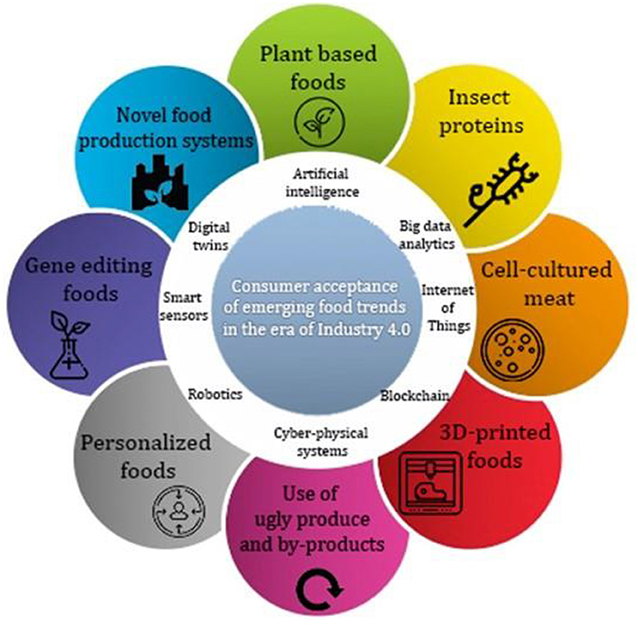In an era marked by growing environmental concerns and the quest for technological innovation, printable sensor technologies stand out as a promising solution for advancing sustainability and enhancing quality of life. Spearheaded by Vincenzo Pecunia, a professor at Simon Fraser University’s School of Sustainable Energy Engineering, a collaborative effort involving over 100 experts from 57 research institutions worldwide has culminated in the development of a comprehensive roadmap for next-generation printable sensor technologies. This article explores the significance of printable sensors in the pursuit of a sustainable, intelligent world and delves into the transformative potential of these technologies across various domains.
The Role of Sensors in Advancing Sustainability: Sensors play a pivotal role in providing real-time data and insights from the world around us, enabling informed decision-making and fostering sustainable practices. From optimizing resource utilization to enhancing environmental monitoring and improving healthcare outcomes, sensors have the capacity to revolutionize numerous aspects of modern life. By leveraging printable sensor technologies, which respond to diverse stimuli including light, radiation, force, temperature, gases, chemicals, and biological substances, researchers aim to democratize access to sensing capabilities and unlock new opportunities for sustainable development.
The Vision of a Sustainable, Intelligent World: At the heart of the roadmap developed by Pecunia and his global network of collaborators lies a vision of a sustainable, intelligent world where everyday objects and environments are empowered with sensing capabilities. Imagine sensors embedded in agricultural fields, enabling farmers to optimize irrigation and maximize crop yields while minimizing water usage. Picture smart homes equipped with sensors that monitor energy consumption, detect air quality fluctuations, and enhance comfort and safety for occupants. Envision cities transformed into interconnected hubs of data-driven insights, where sensors facilitate efficient transportation systems, waste management strategies, and urban planning initiatives.
The Promise of Printable Sensor Technologies: Printable sensor technologies offer a versatile platform for realizing this vision, thanks to their ease of fabrication, cost-effectiveness, and minimal environmental footprint. Unlike conventional sensors, which are often produced using energy-intensive processes at high temperatures, printable sensors can be manufactured using simple methods such as printing and coating at room temperature. This inherent scalability and affordability make printable sensors conducive to widespread deployment, paving the way for large-scale data collection and analysis across diverse applications.
Applications and Implications: The potential applications of printable sensor technologies are vast and varied, spanning multiple sectors including healthcare, agriculture, environmental monitoring, and smart infrastructure. In healthcare, printable sensors hold the promise of revolutionizing diagnostics and personalized medicine by enabling real-time monitoring of vital signs and biomarkers. In agriculture, these sensors can empower farmers with actionable insights to optimize crop management practices and mitigate the impact of climate change on food production. Moreover, in environmental monitoring, printable sensors offer a cost-effective solution for detecting pollutants, monitoring air and water quality, and mitigating the risks of natural disasters such as wildfires.
Challenges and Opportunities: Despite the promise of printable sensor technologies, several challenges must be addressed to realize their full potential. Key hurdles include enhancing sensor performance and reliability, optimizing manufacturing processes, and ensuring compatibility with existing infrastructure and regulatory frameworks. Moreover, efforts to establish local manufacturing capabilities for printable sensors are essential to foster innovation, reduce dependence on imports, and stimulate economic growth in clean-tech and high-tech sectors. Collaborative research initiatives and strategic partnerships will be crucial in overcoming these challenges and accelerating the adoption of printable sensor technologies on a global scale.
The development of a comprehensive roadmap for printable sensor technologies represents a significant milestone in the journey towards a sustainable, intelligent world. Led by Vincenzo Pecunia and an international team of experts, this initiative aims to harness the transformative potential of printable sensors to address pressing societal challenges and improve quality of life for people around the globe. By fostering innovation, driving research advancements, and promoting collaboration, we can pave the way for a green sensor revolution that benefits society, the environment, and future generations. Together, let us embrace the promise of printable sensor technologies and embark on a path towards a more sustainable and resilient future.
